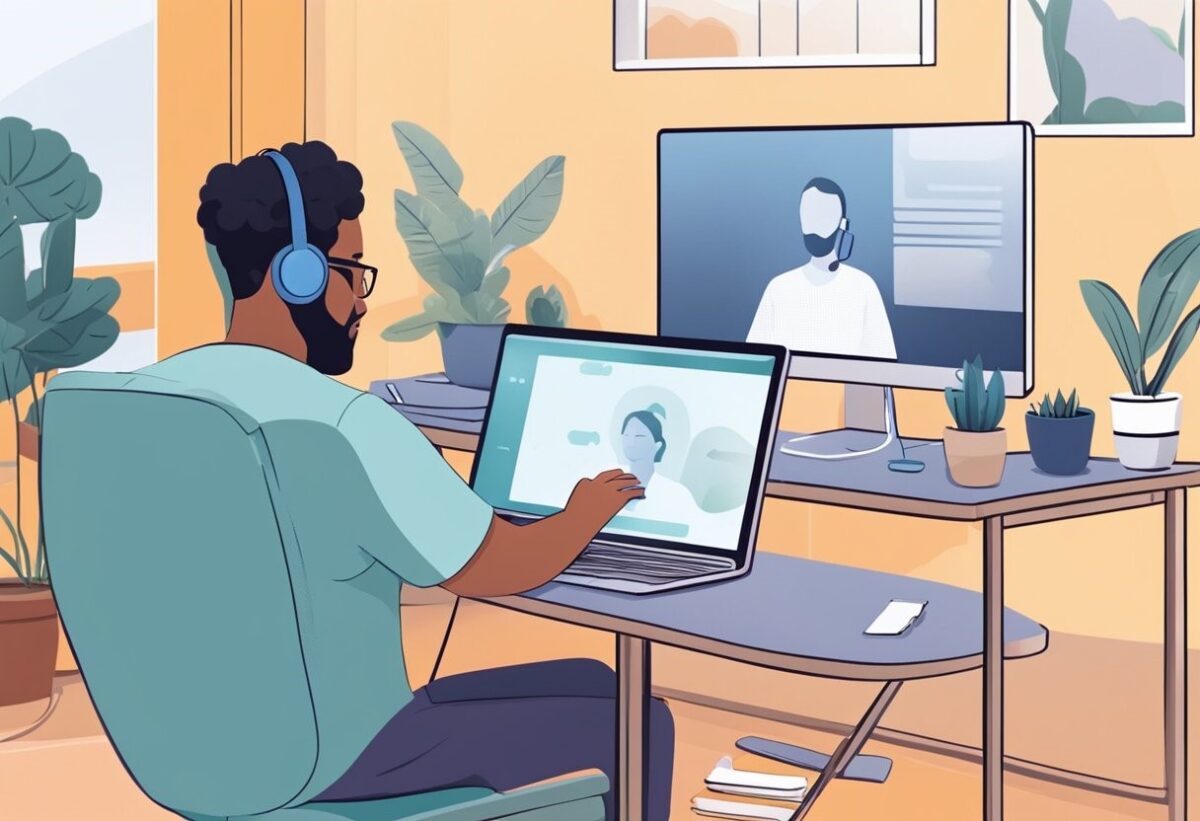OCD Therapist Online: Finding Expert Help for Obsessive-Compulsive Disorder

Many individuals struggling with obsessive-compulsive disorder (OCD) seek effective treatment options that fit their needs. An OCD therapist online can provide the flexibility and accessibility necessary to address symptoms and enhance coping strategies. With technology bridging gaps in mental health services, those affected can engage in therapy from the comfort of their homes.
Online therapy offers a unique opportunity for individuals to connect with qualified therapists who specialize in OCD. They can receive guidance in real-time while managing their daily responsibilities. This approach allows for a personalized experience tailored to individual circumstances, ensuring that therapy aligns with their lifestyle.
As interest in online mental health services grows, the importance of finding the right OCD therapist becomes evident. The right therapist can create a supportive environment that fosters progress and healing. Engaging in therapy online can be the first step toward regaining control and improving one’s quality of life.
Understanding OCD
Obsessive-Compulsive Disorder (OCD) is characterized by persistent, unwanted thoughts (obsessions) and repetitive behaviors (compulsions). Recognizing its symptoms and understanding its roots are crucial for effective treatment. The disorder can significantly affect an individual’s quality of life.
Definition and Symptoms
OCD is a mental health disorder marked by intrusive thoughts and compulsive actions. People with OCD experience obsessions that provoke anxiety, such as fears of contamination or harm. To alleviate this anxiety, they engage in compulsions, which may include excessive cleaning, checking, or counting.
Common symptoms include:
- Obsessive thoughts: Persistent fears of losing control, fears that harm will come to oneself or others.
- Compulsive behaviors: Repeating specific actions multiple times, needing to organize items in a particular way.
Understanding these symptoms is essential for identifying OCD in oneself or others.
Causes and Risk Factors
The exact cause of OCD is not fully understood. Research suggests a combination of genetic, neurological, behavioral, and environmental factors contribute to its development. Family history plays a significant role; individuals with a first-degree relative with OCD are at a higher risk.
Additional risk factors may include:
- Brain structure and function: Abnormalities in specific areas of the brain, particularly those involved in regulating mood and behavior.
- Life events: Stressful life changes or trauma can trigger or exacerbate OCD symptoms.
Understanding these causes can aid in seeking appropriate treatment.
Impact on Daily Life
OCD can disrupt daily functioning, affecting work, relationships, and personal well-being. The compulsive behaviors often consume significant amounts of time, leading to reduced productivity and increased stress.
Individuals may isolate themselves to avoid situations that trigger their obsessions.
Impact areas include:
- Social interactions: Friends and family may struggle to understand the disorder, leading to strained relationships.
- Work performance: Frequent distractions or the need to perform compulsions can hinder job performance.
Helping those affected understand these impacts is vital for fostering empathy and support.
Finding Online OCD Therapy
Online OCD therapy can provide flexible, accessible support for individuals navigating obsessive-compulsive disorder. The following considerations can help in selecting the right therapist and understanding the therapy options available.
Benefits of Online Therapy
Online therapy offers several advantages for those with OCD. Accessibility is a primary benefit. Individuals can connect with therapists from anywhere, minimizing the challenges posed by distance or mobility issues.
Flexibility in scheduling is another significant advantage. Clients can often choose appointment times that best suit their lives, which can lead to increased consistency in attending sessions.
Additionally, some may feel more comfortable discussing sensitive topics from the privacy of their homes. This can lead to a more open and honest therapeutic experience.
Choosing the Right Therapist
Selecting the appropriate therapist for OCD treatment involves several key factors. First, individuals should seek therapists who specialize in OCD or have experience with cognitive-behavioral therapy (CBT), which is effective for this condition.
Credentials matter. Look for licensed professionals with appropriate qualifications and certifications. It is beneficial to read reviews or ask for recommendations to gauge a therapist’s effectiveness.
Finally, consider personal fit. The therapeutic relationship is crucial. Prospective clients should determine if they feel comfortable communicating with the therapist during the initial consultation.
Types of Online Therapy Available
Various modalities are available in online therapy for OCD. Cognitive Behavioral Therapy (CBT) is one of the most widely used. CBT focuses on identifying and challenging negative thought patterns.
Exposure and Response Prevention (ERP) is another effective method. ERP involves gradual exposure to fears, helping individuals learn to manage their anxiety without resorting to compulsive behaviors.
Telehealth sessions can also include supportive counseling or skills training. Finding the right mode can significantly impact recovery and ongoing progress.
Preparing for Your First Session
Preparation for an initial online therapy session can enhance the experience. Clients should take time to reflect on their specific challenges and goals for therapy. Jotting down thoughts can provide a valuable framework for discussions.
Testing the technology in advance is crucial. Ensure a stable internet connection, and familiarize oneself with the chosen platform to minimize technical issues.
Finally, creating a comfortable environment can foster openness. Selecting a quiet, private space for the session helps in focusing on therapy without distractions.









